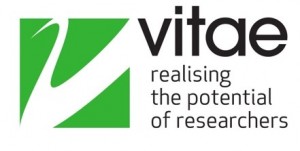The conference: Organised for and by Level H students from three undergraduate degrees and to be held in the Executive Business Centre (7th floor) Wednesday 15th of May 2012.
We will invite 2 keynote speakers, 6 academic and industry contacts and will host an end of conference dinner for all involved. The event will be widely diffused through FB, twitter and a dedicated youtube channel.
Journal of Promotional Communications: CMC’s first in-house journal will be launched at the conference and will bring together the top 7 conference papers.
Our aim: To attract 40 students to sign up to this years conference! Get the local business community excited about the work our students are doing and a platform to engage with our students.
How it benefits us: It gives us an opportunity to co-produce research outputs with our dissertation students.
How it benefits students: It is a great way of celebrating top student work and help students disseminate more widely.
How it benefits the university: Provides a highly visible manifestation and online product of the quality of work being produced by students at the end of their undergraduate university career. It clearly contributes to the university Fusion agenda by providing the mechanisms necessary for co-creation and co-production of research outputs to take place.
Wider community:Academics from other institutions, relevant industry contacts, local press, potentially family of students and local business leaders will be invited to this prestigious event and all will have access to the online journal.
Who should I contact: Janice Denegri-Knott the project leader on JDKnott@bournemouth.ac.uk
















 Beyond Academia: Exploring Career Options for Early Career Researchers – Online Workshop
Beyond Academia: Exploring Career Options for Early Career Researchers – Online Workshop UKCGE Recognised Research Supervision Programme: Deadline Approaching
UKCGE Recognised Research Supervision Programme: Deadline Approaching SPROUT: From Sustainable Research to Sustainable Research Lives
SPROUT: From Sustainable Research to Sustainable Research Lives BRIAN upgrade and new look
BRIAN upgrade and new look Seeing the fruits of your labour in Bangladesh
Seeing the fruits of your labour in Bangladesh ECR Funding Open Call: Research Culture & Community Grant – Apply now
ECR Funding Open Call: Research Culture & Community Grant – Apply now ECR Funding Open Call: Research Culture & Community Grant – Application Deadline Friday 12 December
ECR Funding Open Call: Research Culture & Community Grant – Application Deadline Friday 12 December MSCA Postdoctoral Fellowships 2025 Call
MSCA Postdoctoral Fellowships 2025 Call ERC Advanced Grant 2025 Webinar
ERC Advanced Grant 2025 Webinar Update on UKRO services
Update on UKRO services European research project exploring use of ‘virtual twins’ to better manage metabolic associated fatty liver disease
European research project exploring use of ‘virtual twins’ to better manage metabolic associated fatty liver disease